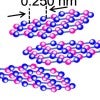
Flashing creates hard-to-get 2D boron nitride
Rice University chemists use their flash Joule heating process to synthesize 2D flakes of boron nitride and boron carbon nitride, highly valued for lending thermal and chemical stability to compounds.

Flashing creates hard-to-get 2D boron nitride
Rice University chemists use their flash Joule heating process to synthesize 2D flakes of boron nitride and boron carbon nitride, highly valued for lending thermal and chemical stability to compounds.
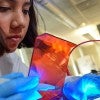
Hidden genes may be tapped for new antibiotics
Rice University bioscientists learn to trigger “silent” gene clusters in bacteria that could be rich sources of new antibiotic candidates.

Nobel laureate, beloved Rice professor Robert Curl dead at 88
Nobel Prize-winning chemist and beloved Rice University Professor Robert Curl died July 3 at age 88.
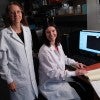
Researchers discover new leukemia-killing compounds
Researchers from Rice and MD Anderson Cancer Center have discovered potential new drugs for treating leukemia.

DOE backs Rice physicists’ collaboration
Rice nuclear physicists win a Department of Energy grant to research the fundamental properties of matter in extreme conditions.
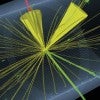
An Owl’s-eye view of the Higgs boson at 10
Anniversary finds Rice physicists pushing forward as Large Hadron Collider reboots
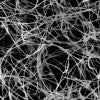
Boron nitride nanotube fibers get real
Rice scientists create the first boron nitride nanotube fibers using the custom wet-spinning process they developed to make carbon nanotube fibers.
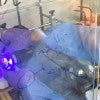
Process to customize molecules does double duty
Chemists develop a method to add two fragments to an alkene molecule in a single process, which could simplify drug and materials design.
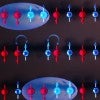
Rice lab’s quantum simulator delivers new insight
A Rice University quantum simulator is giving physicists a clear look at spin-charge separation, a bizarre phenomenon in which two parts of indivisible particles called electrons travel at different speeds in extremely cold 1D wires. The research is published this week in Science and has implications for quantum computing and electronics with atom-scale wires.

Schooling status during pandemic predicted parents’ resilience
A new study suggests parents accustomed to home schooling felt more resilient during the COVID-19 pandemic than those whose public-school children were suddenly housebound, especially when the latter parents did not meet recommendations for physical activity.

Rice physicist wins DOE early career award
Physicist Guido Pagano wins a prestigious Early Career Research Award from the Department of Energy.
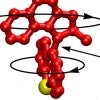
Bacteria-killing drills get an upgrade
Rice scientists have created light-activated molecular drills that can kill antibiotic-resistant bacteria.
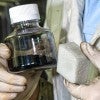
Cars could get a ‘flashy’ upgrade
Rice University chemists, working with the Ford Motor Company, processes waste plastic from end-of-life trucks into graphene for composite materials in new vehicles.
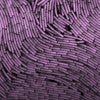
Rice bioengineers are shining light on bacterial stress
Rice bioengineers are ready to shine a lot of light on bacteria’s genetic response to stress.

CPRIT grants entice three cancer researchers to Rice
Rice University recruits three professors to bolster cancer research with grants from the Cancer Prevention and Research Institute of Texas.